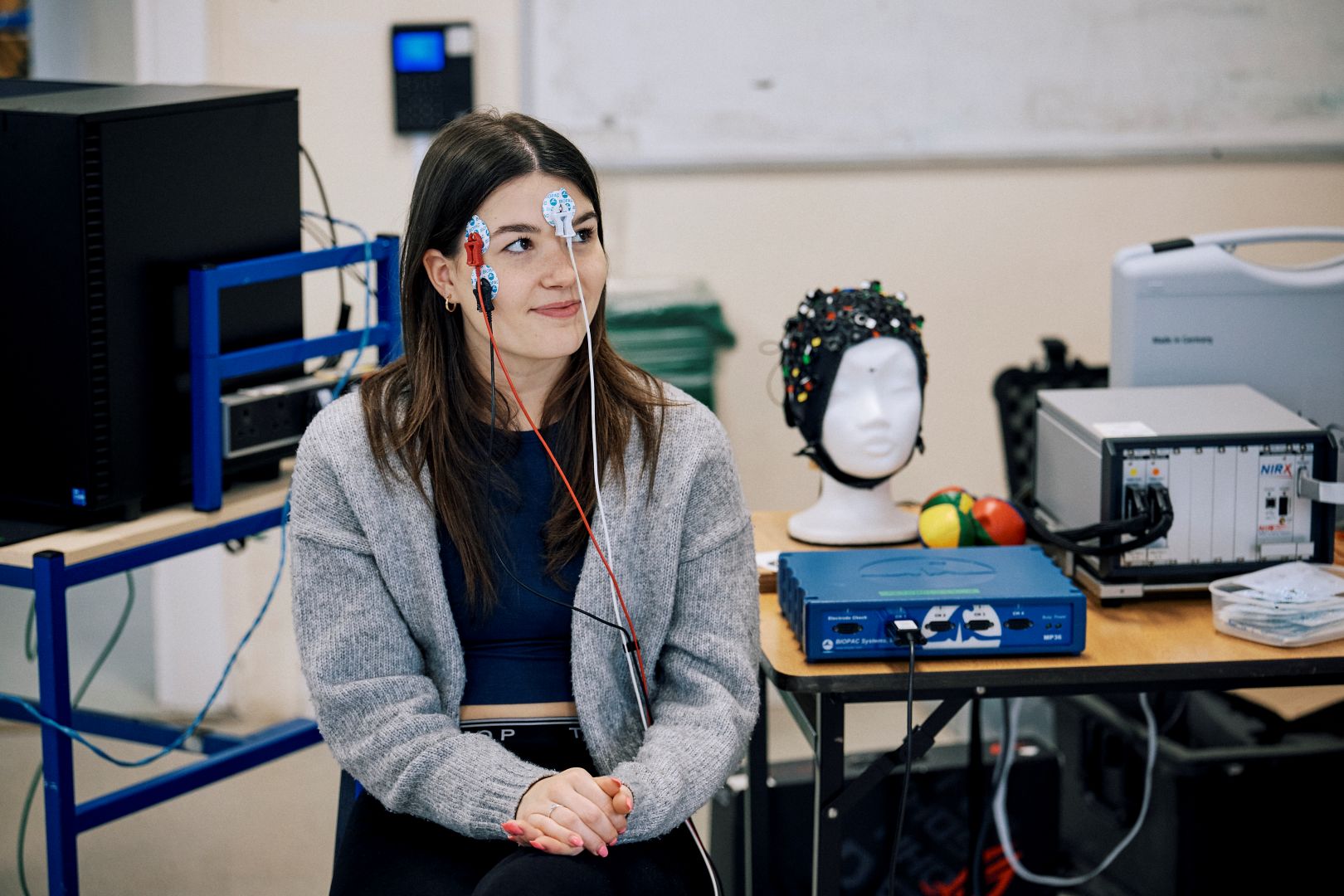Switched on: Apprentice Caroline Thomas is lighting a trail for women in electrical engineering
WITH more than 100 degree apprentices across 10 programmes, the University of Chichester has become one of the fastest-growing providers in the country – here, as part of National Apprenticeship Week, our students tell their stories:
High-flying degree apprentice Caroline Thomas (below right) didn’t head straight to university after leaving school, having struggled to learn effectively when confined to the classroom.
She did, however, want to become an electrical engineer.
Now, just two years since starting a degree apprenticeship at the University of Chichester, she is thriving as a senior electrical technician at global tech giant Honeywell and is blazing a trail for women in engineering.
“I’ve always been a hands-on person,” says the 24-year-old. “University didn’t feel right for me when I left school because I didn’t have the grades and had no interest sitting in a classroom.”
It was after stumbling on a newspaper ad that Caroline first explored a level three NVQ apprenticeship – despite not knowing much about the process. After a few years at Honeywell, in its advanced building management division, she enrolled in a level four course at Chichester.
“I really like the balance of the apprenticeship,” she adds. “I work for four days a week at Honeywell and a day at the University in the classroom. You gain lots of skills in industry, and then I can put the things I’ve learnt in lessons into practice at work.”
Degree apprenticeships are developing a skilled workforce
Caroline’s four-year degree apprenticeship, the BEng (Hons) in Electronic and Electrical Engineering, is the only one of its kind on the south coast and came about after the University and Honeywell struck up a partnership to develop a workforce capable of hitting the ground running.
The degree gives Caroline all the benefits of a traditional degree without having to repay the student loan, alongside first-hand industry experience – all the while receiving a paid wage. Caroline’s part of a new wave of students looking at alternative routes to employment: latest government figures show thousands enrolled in courses in the 2018-2019 academic year.
She says: “I was nervous when I started as there’s lot of maths involved in engineering. That was the subject I found hardest at school. But I’ve been surprised at how much I’ve learnt – due to hard work and seeing a practical application through my apprenticeship – and it’s now become my strongest subject.”
“I’m proud of being a woman in engineering”
Caroline is part of a team at Honeywell which designs systems that make buildings smarter and more environmentally-friendly. “Building management systems is a growing industry as firms are focused on reducing their carbon footprint,” she adds. “This is one of the reasons which drew me to the apprenticeship: I think about the smaller things and how we can make an impact.
“I’m also proud of being a woman in engineering and hope to encourage other woman and girls to pursue an interest in STEM [science, technology, engineering, maths] careers.”
Caroline was recently asked by to develop a lighting monitor which could communicate with lighting devices – which she has been able to use as the basis of her university work. “It’s nice that I’ve been able to bring real-life examples of my work into my coursework because it means I can be completely immersed in what I’m doing.”
She credits her University lecturers for helping her to bridge the gap between the workplace and education. “You can tell they want you to succeed, and they’re always available to help, even though I’m only in at the University one day a week.
“As individuals we learn in different ways,” Caroline adds, “and I’ve always believed you get more out of people if you offer a them a choice of career paths. Apprenticeships can suit a lot of people, and it ticks all of the boxes for me: we don’t pay for our degree and I get a wage for doing something I love.”
Find out more
Details of the BEng (Hons) in Electronic and Electrical Engineering degree apprenticeship at the University of Chichester can be found at www.chi.ac.uk/engineering.
For more about degree apprenticeship opportunities at Honeywell go to www.honeywell.com.
There’s more about National Apprenticeship Week at www.Twitter.comApprenticeships.





